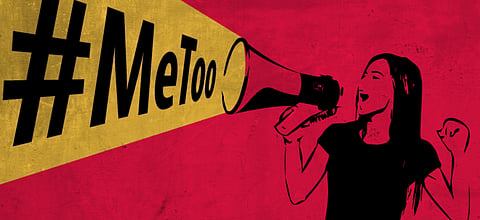Remaking #MeToo in Sri Lanka
In March 2019, there were small rumblings on Sri Lankan Twitter which sounded and looked like #MeToo. There seemed to be, in at least one woman's tweets, the markings of the iconic 'movement' which has taken much of the middle to upper-middle-class English-speaking world by storm since around October 2017. While #MeToo ostensibly has had the most real-life consequences in Hollywood, it has also made its mark in other pockets in the US, most significantly surrounding the controversial appointment of Brett Kavanaugh to the US Supreme Court.
But there have been consequences closer to home too; just one week after '#MeToo' began going viral in October 2017, a crowd-sourced list of Indian academics and university teachers was posted online in India, alongside descriptions of (anonymous) allegations against them. It sent Indian feminist communities into dynamic, sometimes divisive debate. But besides one fired, another suspended, a third stepping down from his post, and some statements, nothing significant was done by way of investigating any of the men who appeared on the list

